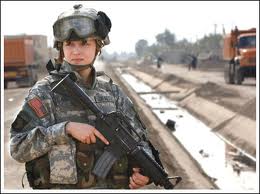 A disturbing trend in many cases of domestic abuse, sexual assault, and rape against women is the tendency to blame the victim of the crime, rather than the perpetrator. Over the past several months, there have been a number of high profile cases of violence against women that highlight the victim-blaming culture we live in.This was seen in the aftermath of the recent Steubenville, Ohio trial in which two male high school football players were found guilty of raping a sixteen-year-old girl who was unable to consent to sexual activity after drinking alcohol at a party. Many individuals, both male and female, reacted to the trial and the guilty verdicts by harshly blaming the young woman for being raped, and declared the men’s innocence, despite the evidence against them. There has also been strong backlash against CNN’s reporting of the verdict, and its emphasis on the impact on the lives of the two men found guilty, rather than the victim. Reporter Poppy Harlow stated “These two young men that had such promising futures ... literally watched as they believed their life fell apart,” and Candy Crowley reported “What’s the lasting effect though on two young men being found guilty in juvenile court of rape essentially?” She failed to discuss what the lasting effect on the young woman who was raped might be (Shapiro).
A disturbing trend in many cases of domestic abuse, sexual assault, and rape against women is the tendency to blame the victim of the crime, rather than the perpetrator. Over the past several months, there have been a number of high profile cases of violence against women that highlight the victim-blaming culture we live in.This was seen in the aftermath of the recent Steubenville, Ohio trial in which two male high school football players were found guilty of raping a sixteen-year-old girl who was unable to consent to sexual activity after drinking alcohol at a party. Many individuals, both male and female, reacted to the trial and the guilty verdicts by harshly blaming the young woman for being raped, and declared the men’s innocence, despite the evidence against them. There has also been strong backlash against CNN’s reporting of the verdict, and its emphasis on the impact on the lives of the two men found guilty, rather than the victim. Reporter Poppy Harlow stated “These two young men that had such promising futures ... literally watched as they believed their life fell apart,” and Candy Crowley reported “What’s the lasting effect though on two young men being found guilty in juvenile court of rape essentially?” She failed to discuss what the lasting effect on the young woman who was raped might be (Shapiro).
Similar incidences can be seen throughout the world. In mid-March, a Swiss woman was gang raped by a group of men while camping overnight in India with her husband. The men robbed the couple, tied up and beat the man, and gang raped the woman. During the course of the investigation, local police claimed that the tourists were at least partially to blame, as they failed to tell the police where they were staying (Sieczkowski). While these are just a couple of cases that made headlines, women are victims of sexual and domestic violence every day, usually without any media attention.
Within this culture of victim blaming, women are told to change their own behavior in order to avoid being assaulted or raped. Women are told repeatedly to dress less provocatively, drink less alcohol, and not put themselves in risky situations. This proliferates the belief that women are at fault when they are attacked, and leads to a lack of accountability for men. Recently though, there has been a push to increase rape and assault prevention education for men. Zerlina Maxwell, a rape survivor who appeared on the Fox News show “Hannity” to discuss this issue, advocates rape prevention education for young boys and men, stating that “we need to teach them about consent and to hold themselves accountable.” This is significant because despite the common perception that rapists are usually violent strangers, women are often raped by men they trust and consider friends (Williams). This strategy was used in a 2011 Canadian ad campaign called “Don’t be that guy.” One poster consisted of an image of a woman appeared to be passed out, surrounded by alcohol, along with a quote stating “Just because she isn’t saying no doesn’t mean she is saying yes.” After the launch of this campaign, rates of sexual assault in Vancouver dropped for the first time in years, by a rate of 10% (Matas).
While it’s important that women continue to be empowered and educated on how to prevent rape, this education needs to be extended to men as well. Men and women need to work together to change the culture of victim blaming, and help reduce violence against women.
For more information or help, visit the Violence Against Women page on womenshealth.gov.

 On Monday, former Secretary of State and retired Gen. Colin Powell and dozens of other military leaders urged Congress to support abortion coverage for servicewomen in cases of rape and incest, ABC News' "
On Monday, former Secretary of State and retired Gen. Colin Powell and dozens of other military leaders urged Congress to support abortion coverage for servicewomen in cases of rape and incest, ABC News' " Sexual violence is a serious public health problem in the United States and world wide! Statistics underestimate the problem because many victims are afraid to tell the police, family, or friends about the violence. In the United States, 1 in 5 women and 1 in 71 men report that they have experienced an attempted or completed rape in their lifetime. In addition, nearly 1 in 2 women and 1 in 5 men report that they have experienced sexual violence victimization other that rape in their lifetime. Globally, one in four women will likely experience sexual violence by an intimate partner and one in three girls report their first sexual experience being forced, according to the World Health Organization (WHO).
Sexual violence is a serious public health problem in the United States and world wide! Statistics underestimate the problem because many victims are afraid to tell the police, family, or friends about the violence. In the United States, 1 in 5 women and 1 in 71 men report that they have experienced an attempted or completed rape in their lifetime. In addition, nearly 1 in 2 women and 1 in 5 men report that they have experienced sexual violence victimization other that rape in their lifetime. Globally, one in four women will likely experience sexual violence by an intimate partner and one in three girls report their first sexual experience being forced, according to the World Health Organization (WHO).